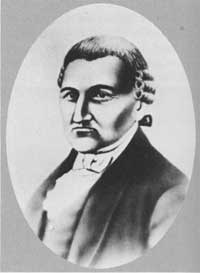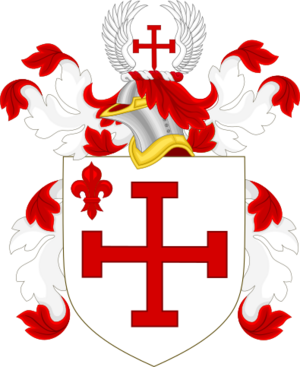David Brearley facts for kids
Quick facts for kids
David Brearley
|
|
|---|---|
 |
|
| Judge of the United States District Court for the District of New Jersey | |
| In office September 26, 1789 – August 16, 1790 |
|
| Appointed by | George Washington |
| Preceded by | Seat established by 1 Stat. 73 |
| Succeeded by | Robert Morris |
| Personal details | |
| Born |
David Brearley
June 11, 1745 Spring Grove, Maidenhead (now Lawrence Township), Hunterdon County, Province of New Jersey, British America |
| Died | August 16, 1790 (aged 45) Trenton, New Jersey |
| Resting place | St. Michael's Church Trenton, New Jersey |
| Education | Princeton University read law |
David Brearley (June 11, 1745 – August 16, 1790) was a very important person in the early history of the United States. He was one of the "Founding Fathers" who helped create the country. Brearley served as the Chief Justice of the Supreme Court of New Jersey, which is the highest court in that state. He was also a delegate from New Jersey at the Constitutional Convention in 1787. This was a special meeting where the United States Constitution was written. He even signed this important document! Later, he became a federal judge for the United States District Court for the District of New Jersey.
Contents
David Brearley's Early Life and Career
David Brearley was born on June 11, 1745, in what is now Lawrence Township, New Jersey. His parents were Mary and David Brearely Sr. He went to the College of New Jersey, which is now known as Princeton University. After college, he studied law and became a lawyer. He worked as a lawyer in Allentown until 1776.
Fighting for Independence
Before the American Revolution began, David Brearley was against the rules made by the British Parliament. He was even arrested once for speaking out, but a group of people helped him get free.
When the Revolutionary War started, Brearley joined the fight for American independence. He began as a captain in the Monmouth County local army (called a militia). He quickly moved up in rank and became a colonel in the New Jersey militia. From 1776 to 1779, he served in the Continental Army, which was America's main army. He fought in important battles like the Battle of Brandywine, the Battle of Germantown, and the Battle of Monmouth.
A Top Judge in New Jersey
After his military service, Brearley became the chief justice of the Supreme Court of New Jersey. He held this important position from 1779 to 1789. During his time as chief justice, he made a very important decision in a case called Holmes v. Walton. In this case, he ruled that judges had the power to decide if a law was against the constitution. This idea is called "judicial review" and is a key part of how the U.S. government works today.
Helping Write the U.S. Constitution
In 1787, David Brearley was chosen to be a delegate from New Jersey at the Constitutional Convention. This was a meeting where leaders from different states came together to write a new plan for the government, which became the U.S. Constitution.
At the Convention, Brearley was the leader of a special group called the Committee on Postponed Parts. This committee had a big role in shaping the final document. They worked on important topics like:
- How taxes would be collected.
- How the country would declare war.
- Rules for patents and copyrights.
- How the government would deal with Native American tribes.
- A compromise about money bills starting in the House of Representatives.
One of the biggest things they worked on was the presidency. The committee helped create the Electoral College system for choosing the president. They also figured out what would happen if no candidate won a majority of the Electoral College votes. The committee also changed the president's term from seven years to four years and allowed presidents to run for re-election. They moved impeachment trials (when a president is accused of wrongdoing) from the courts to the Senate. They also created the role of the vice president, whose main job was to take over if the president couldn't serve and to lead the Senate.
David Brearley ultimately signed the finished Constitution, showing his support for this new plan for the country.
Serving as a Federal Judge
After the U.S. Constitution was written and the new government began, President George Washington nominated David Brearley to be a federal judge. On September 25, 1789, he was appointed to the United States District Court for the District of New Jersey. He received his official appointment on September 26, 1789. He served as a federal judge until his death on August 16, 1790, in Trenton, New Jersey.
Death and Legacy
David Brearley passed away on August 16, 1790. He is buried in the churchyard of Saint Michael's Episcopal Church in Trenton, New Jersey. A special monument, called a cenotaph, was placed there in his honor in 1924.
Brearley left behind an important legacy. After the Revolutionary War, he helped start the Society of the Cincinnati in New Jersey. This group was for officers who had served in the Continental Army. He was the vice president of this society from 1783 until his death. In 1789, he was also chosen to be a member of the American Philosophical Society, a famous group dedicated to knowledge and discovery.
Several places and institutions are named after David Brearley to honor his contributions:
- David Brearley High School in Kenilworth, New Jersey.
- Brearley Street in Madison, Wisconsin.
- Brearley Crescent in Waldwick, New Jersey.
- Brearley Lodge No.2 Masonic Lodge in Bridgeton, New Jersey.
 | Audre Lorde |
 | John Berry Meachum |
 | Ferdinand Lee Barnett |


